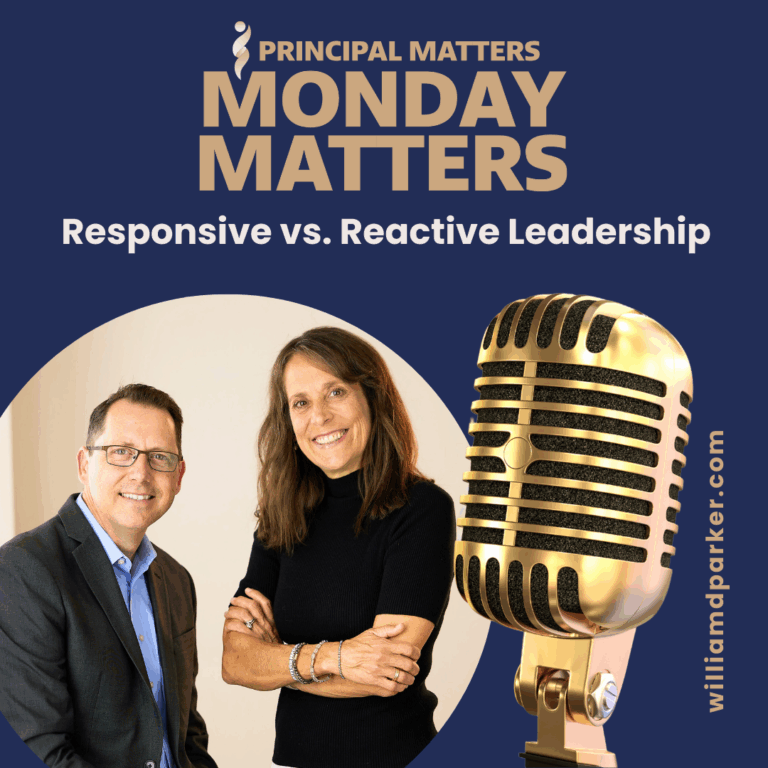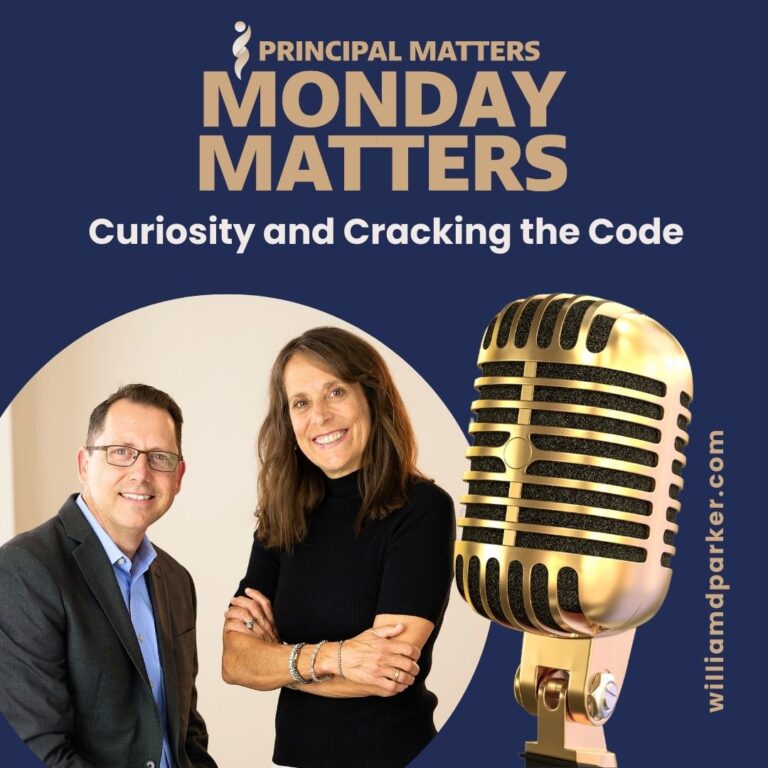Podcast: Play in new window | Download
Jenny is a returning student at her high school. She has a part-time job which keeps her up late most nights.

When she arrives late to school, she has already missed breakfast and she’s tardy. She stands in a long line at the counseling office until she is given her class schedule. She reads it quickly: First hour, Mr. Samuels, room 125, Algebra II. She doesn’t recognize the name. Maybe he’s one of the new teachers.
She heads down the hall. She’s flush with frustration but holds her head high, turns the corner and steps into the classroom. She finds an open seat in the back of the room. As she glances around the room, she does not see the teacher’s name anywhere.
By this time, she’s too embarrassed to ask, and the teacher is so involved in his first-day-of-school speech that he hasn’t paused to ask Jenny for her name, schedule, or given her any other leads. As he talks on, she realizes this is Language Arts, not a math class. She must have entered the wrong room or misread her schedule.
Jenny endures the discomfort for the remaining minutes. Then she rushes from the class as quickly as possible, frustrated and hoping the rest of her first day of school is not this confusing.
Keeping students in mind
As important as it is to keep your responsibilities in mind as you start a new school year, it is even more important to keep the end-goal in mind: serving students. You have students returning from all kinds of backgrounds and experiences. You also serve teachers, staff and parents with questions and concerns. How can you be ready for all of them?
Questions every student is asking on the first day
As you know, how we prepare for students can either help or hurt their first-day experiences. Harry Wong, author of The First Days of School: How to Be an Effective Teacher, reminds us of seven questions every student asks about his or her teachers:
1. Am I in the right room?
2. Where am I supposed to sit?
3. Who is the teacher as a person?
4. Will the teacher treat me as a human being?
5. What are the rules in this classroom?
6. What will I be doing this year?
7. How will I be graded?
Questions every teacher and staff person asks on the first day
But students aren’t the only ones who need clarity. Your teachers and staff also want to know some questions that only school leaders an answer. So I’ve re-written Harry Wong’s questions to reflect what your teachers and staff will be asking:
1. What is my schedule?
2. What extra duties, assignments or activities might I expect?
3. Who is my administrator as a person?
4. Will he/she treat me as a human being?
5. What are the expectations, procedures, policies in our school?
6. What am I expected to accomplish this year?
7. How will I be evaluated, mentored, graded or coached?
Tips for school leaders preparing for school
With those thoughts in mind, this week’s Principal Matters podcast co-host Jen Schwanke and I share six ideas to keep in mind when preparing for your start of school. (Listen to the podcast version for even more stories and takeaways.)
1. Build and re-build relationships.
As teachers, staff or parents return to your building, how are you reconnecting with them? Whether it’s hearing about summer trips, family updates, or meaningful moments in their lives, these conversations are important for building trust. They also open questions your teammates may have that are important for you to answer before school begins.
2. Use technology and social media.
Jen likes to schedule several reminders to her community through social media that she posts throughout the summer. Whether you are using your school website, school-wide communication apps, or social media — share out important announcements and reminders various times throughout the summer to set expectations for the new school year.
3. Organize and manage– Remember everything!
Obviously, no system is perfect, but as you move into a school year, it is important to keep a list of to-do’s for your team and yourself. One way to do this is to maintain a list as you start the year that you can use again the following year(s). Go through last year’s calendar to see if you’re missing anything.Rely on a team (secretaries, assistants, lead teachers) who can help you stay on track
4. Define responsibilities.
Sometimes principals have well-defined expectations for teachers but forget about non-instrucational staff. Consider working with each staff member on well-defined key responsiblity areas. (You can learn more and see samples in previous posts). With teachers and staff, don’t be afraid to say what is expected and providing it in writing.
5. Manage high anxiety.
Everyone is anxious (in good or bad ways) about the start of school. And they are looking to the principal to set the tone. So manage the high anxiety by demonstrating a sense of calm and reassurance. One way to do this is by including celebration in your welcome-back. Provide lunch, give them a gift, communicate positivity, reassure them again and again that it will be a great year and all will be well.
6. Host orientation meetings.
New teachers, old teachers, new students, returning students, new parents — you will have several groups who need to be welcomed in orientation meetings. Each group will have different needs, but the goals are the same: communication expectations, be positive, and be available to answer questions.
Additional Checklists for the School Leader’s First-Days of School
Here are some additional questions to ask as you start the school year:
· Have you posted “Welcome Back” signage?
· Have you included maps of your school for new students?
· Is signage clear and visible throughout the building?
· Have you shared master schedules in advance with teachers?
· What are your established arriving/departing routines?
· Did you update and plan for consistently implemented policies and procedures?
· Have parents and students been invited to an orientation or open-house before school?
· Is your school website updated with current calendars and a welcome back message for parents and key information they should know?
· Have you updated and shared duty-rosters, activities and/or game calendars for teachers?
· Does your own calendar include dates for state reports, observations, evaluations, and team-meetings?
Let’s Wrap This Up
Think through your school-wide processes from the fresh perspective of a student, parent or teacher, and then decide what steps to take moving forward so that everyone in your school or organization has clarity on what to expect. Most importantly, remember that creating the best “first days” for students and staff is also realizing your school members need many of these questions answered every day.
Now It’s Your Turn
Take time to reflect on the above questions, tips, and checklist. What are some steps you can be taking right now to prepare for a great school year? How can you keep the perspective of your students, teachers, staff, and parents in mind in each part of your preparation? Don’t do this alone. Who can you include on your team in accomplishing these goals?
Reference: Wong, Harry and Rosemary T. Wong, THE First Days of School: How to Be an Effective Teacher, 2018.
P.S. Principal Matters Update: We keep growing!

As I wrap up this week’s post, I wanted to share some Principal Matters “family” updates: As this school leadership community learns together, we have thousands of readers and listeners, not only around the states, but also in countries around the world. These are women and men who teach or lead in schools of all grades, sizes, and demographics. Here are some quick stats as of July 2019:
- To date, 2,497 readers subscribe for weekly emails updates (These include educators in North America, Australia, Africa, Asia and European nations).
- More than 3,000 podcast episodes are being downloaded each week (3,871 podcast episodes have been downloaded by listeners this week alone).
- 280,791 podcast episodes have been downloaded in total since launching in November 2015.
Even though we have a relatively “small” online community compared to other platforms, think of this for perspective:
- 5,000 Principal Matters readers/listeners are regularly listening, reading, learning and growing in school leadership each week.
- These leaders serve students, teachers, and communities. Assume this represents schools of 200 students each (although many of you serve thousands).
- At least 1 million students are being touched right now by our collective work!
Share the Learning!
It’s exciting to think of the collective experiences we all share. Do you know other education leaders who would benefit from these lessons? If so, please forward along this post and invite others to subscribe for this free content.
In fact, if you know any education leaders in South America or Antartica, I’d love to include then and cover all 8 continents!
New Offer: Masterminds for Education Leaders

As I think about the 2019-2020 school year, I am planning on offering a Mastermind for Education Leaders. What is a Mastermind? This would be an exclusive weekly virtual meeting for school leaders who want to have one-hour of focused learning, feedback, and mentoring. Each member will be hand-picked to join the mastermind community.
To participate in a Mastermind, you would commit one hour a week to our online group meeting and another hour a week to personal development and leadership exercises. If you’re interested, applying is the first step. After reviewing applications, I will reach out to qualified candidates for an admissions phone interview. There is also a monetary commitment to be a part of this exclusive community.
Interested in a Mastermind? Before launching this portal or application on my website, I wanted to hear from any listeners or readers who may be interested. If that’s you, please email me at will@williamdparker.com. Just include the subject line, “Mastermind”, with your contact information. You’ll be the first to know when this option is live and available for application.
Sign-Up For Free Updates and Ebook
You can automatically receive my newest posts and a free Ebook, 8 Hats: Essential Roles for School Leaders. Let’s keep learning together!




